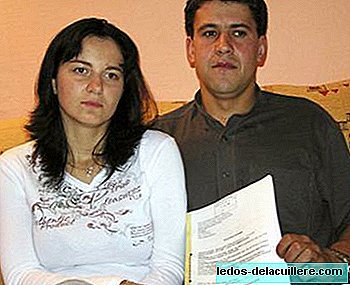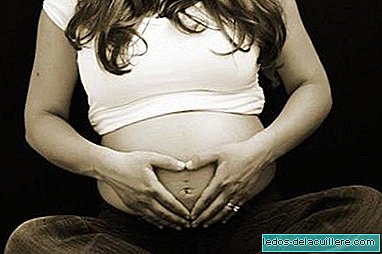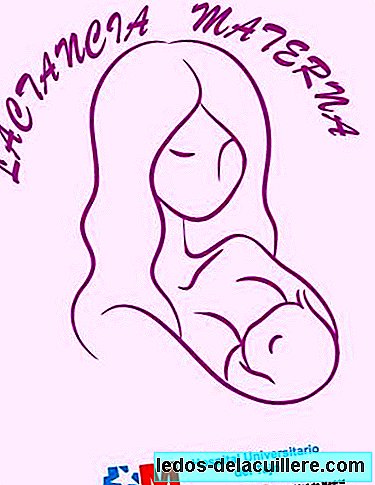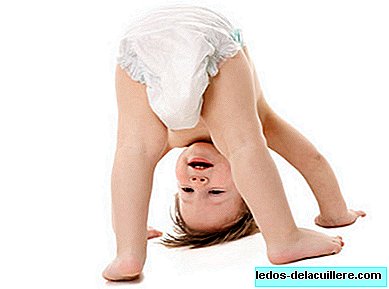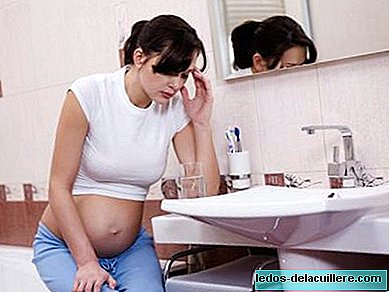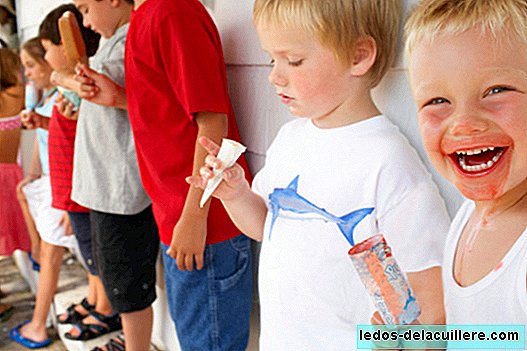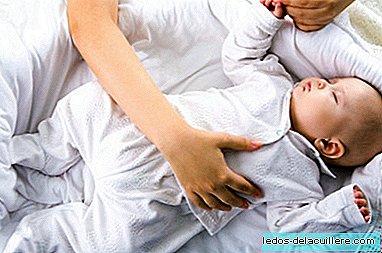
One of the most common concerns of parents in the first months of life has to do with the breathing of their newborn baby. There are many who have approached while sleeping to see if they breathe correctly. It is normal and expected that this is the case, a manifestation of the protection instinct that mammals have towards our young.
The dreaded sudden death syndrome makes parents very aware of how the newborn breathes, especially at bedtime. So that you can understand this process, we are talking today about some curiosities about the breathing of newborns What you should know
They have irregular breathing
In babies, especially premature babies, there is a irregular breathing pattern until your respiratory system matures. They can breathe quickly and deeply and then switch to a slower, shallower breath, and later again inhale deeply. They can even make sighs from time to time.
Babies have nasal breathing.
Babies only breathe through the nose since due to their physiology (their soft palate is very close to the epiglottis) an almost complete sealing of the air viaducts inside the mouth occurs. The nose can regulate the humidity and temperature of the inspired air and serves as a filter for harmful agents. So we don't have to worry about the fact that the baby breathes that way.
It will not be until approximately six months when your respiratory system has acquired sufficient maturity to start breathing through your mouth too. At that age the muscles of the tongue, face and palate develop, the epiglottis moves down to separate from the soft palate and leave more space, and can begin to breathe through the mouth.
They breathe faster than adults
Babies have a faster breathing rate than adults. The respiratory rate can vary widely, between 40 and 60 breaths per minute, while an adult breathes about 20 times per minute. After an episode of crying or if the baby is agitated, it is normal for breathing to be faster.

They have breathing pauses
During sleep, blood pressure, heart rate and breathing slow down, causing small pauses in breathing.
Newborns have periods during which stop breathing for 5 to 15 seconds and then they breathe again for themselves. This is known as periodic or cyclic breathing, which is a normal respiratory pattern in newborns (very common in premature babies), without cardiocirculatory repercussion and with spontaneous recovery.
These normal pauses must be distinguished from a pathological apnea, which is any episode of absence of respiratory flow lasting more than 20 seconds.
Snoring is frequent
The most common cause of snoring in babies is a cold, which can clog the airways. It is not worrying and disappears as soon as the cold passes. It is important to keep the nose clean, doing frequent nasal washes with physiological serum.
But in some cases (approximately 20% of children who snore) snoring is the first symptom of a more serious respiratory sleep disorder, the apnea-hypopnea sleep syndrome. In these cases, snoring is accompanied by symptoms such as stop breathing for 20 seconds or more, or that the baby seems to "fight" at night, sweat a lot or adopt strange postures when sleeping.
When should we worry? Warning signs
- If you stop breathing for 20 seconds or more.
- If you notice that the lips, tongue, face or trunk become bluish.
- If you notice a very high breathing rate: more than 60 breaths per minute
- If you breathe hard: gasping, choking, noise, the ribs sink.
- If you suspect that your child has stopped breathing, you move him and he does not respond, call for emergencies and begin the cardiopulmonary resuscitation (CPR) maneuver while the toilets arrive.


